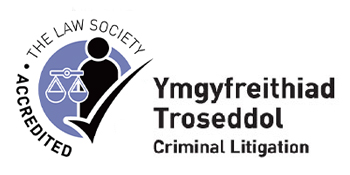STRAIN
A'I GWMNI
AND COMPANY
14A Stryd Penlan, Pwllheli, Gwynedd

Prison rehabilitation and employment

Dyddiad: 2019-07-23
Cyfieithiad i ddilyn yn fuan…
Recently the government announced incentives for prisoners in custody focussing on positive reinforcements. In doing so, the longer-term aim is to assist rehabilitation and prevent re-offending.
A further announcement has been made on the same theme, and this is to assist ex-offenders in obtaining employment by removing the barriers once they have left prison.
What is the government doing?
Legislation will be passed that changes the circumstances in which certain convictions need to be declared to potential employers.
The current position
Currently, if a conviction is ‘unspent’ it will usually have to be declared, and whether a conviction is spent depends on the amount of time that has passed. The longer the sentence, the longer it takes for it to be spent.
All sentences from a fine to imprisonment have specified periods of time attached before they can be considered as spent, and that length also depends on the age of the offender.
Certain spent convictions also need to be disclosed for certain jobs.
What will change?
Currently, an ex-offender who committed an offence as a child and received a sentence over four years will still be required to disclose that conviction as an adult, even if he has not committed any other offences since then. The legislation is aimed at removing this sort of situation, which is clearly disproportionate.
Certain sentences that are over four years long will not have to be disclosed after a specified time has passed. In addition, the time periods, that will be known as ‘rehabilitation periods’, will be shortened for other sentences such as periods of imprisonment of fewer than four years and community sentences.
Will this include all offences and sentences?
Certain violent, sexual or terrorism offences and life sentences are likely to be excluded from the new legislation. Sensitive roles, such as those that involve working with vulnerable adults or children, will continue to be subject to separate and more strict rules.
Will it include all offenders?
Only those who have stopped offending will likely be entitled to regard the convictions as spent. If an ex-offender does go on to re-offend during the ‘rehabilitation period’ they will have to tell their employer about the older conviction and any new ones.
What are the new time periods?
These are yet to be decided on, and the government will be consulting with other agencies in the criminal justice system and relevant bodies before making a final decision.
Why is this being done?
Statistics show that ex-offenders can find it very difficult to find employment once they are released and that many employers will not employ ex-offenders. Only 17% of ex-offenders find work within a year of their release.
It is known that the longer a person can go without re-offending the more likely it is that they will not re-offend at all, and having employment can play a large part in a person not re-offending.
What happens next?
Following the government consultation referred to above, there will be a detailed outline of the proposals produced. The Supreme Court recently gave a judgment on the rules for the more sensitive roles and government are to consider and respond to this.
If you need specialist advice, then get in touch with Michael Strain on 01758 455 500 and let us help. We can advise on all aspects of your case.
Yn ôl i'r prif dudalen blog.
Mae Ein Arbenigedd yn Cynnwys:
> Anaf Personol
> Cyfraith Teulu
> Trosedd
> Ymgyfreitha Cyffredinol
Gwybodaeth Defnyddiol
> Ariannu a Costau
> Cysylltiadau a Gwybodaeth Pellach
> Cydnabyddiaeth a Cymhwysterau
> Geirda
Cysylltwch â Ni
Cyfeiriad: 14A Stryd Penlan, Pwllheli, Gwynedd
Ffôn: 01758 455500
E-bost: office@strainandco.co.uk

© 2024 Strain a'i Gwmni. Rheolir ac Awdurdodir gan yr SRA rhif 644052. Cedwir Pob Hawl. Rhybudd Preifatrwydd.
Gwefan gan Delwedd.